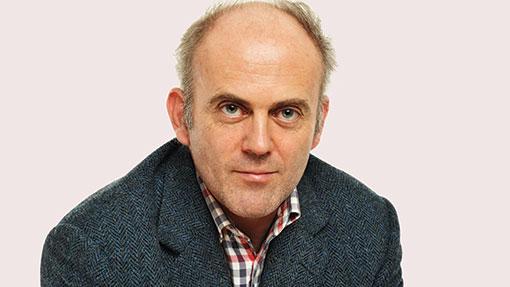Opinion: Living on the smell of an oily rag

Wheat is less than £120/t off my combine, my rape in store is worth barely £235/t, and my fat cattle are struggling to gross £1,000 in my local market. But can I let you in on a secret? I’m irrepressibly cheerful.
You won’t see the slightest sign of my cheerfulness, of course. As a professional farmer I know better than ever to smile or make an upbeat comment in public. Such ill discipline might lead a landlord to think it an excuse to put my rent up, my machinery dealer might take it as a signal to offer me less discount on a tractor or, worse still, a member of the public might gain the impression that I don’t need my single farm payment to make ends meet.
But behind this convincing façade of constant whingeing and grumbling about everything from the weather to politicians, I am like a pig in clover. At last, after 10 years of prosperity we have returned to an economic farming environment I feel happiest and most at home with – a ruinous one.
Read also: Much has improved since 2004 – just not yields, writes Ian Pigott
The past decade has been a deeply unsettling one for me as, contrary to my expectations, farming has prospered while the rest of the UK economy has floundered in a prolonged recession. I was completely flummoxed as beef prices rose to unprecedented highs, arable commodity prices (supported by biofuel subsidies) set new records, and all this profitability was topped up with a SFP that grew and grew in value as the pound set new lows against the euro.
What a relief, then, 2014 has so far been. A cool £400 a head wiped off my current run of fat cattle compared with a year ago. An equally cool £400 knocked off the gross margin of each hectare of feed wheat I am currently harvesting, and my SFP for 2015 and beyond predicted to fall drastically as it is eroded by modulation and a strong pound.
Just what all this will do to farmland prices only time will tell but let’s hope we start to see them go into freefall. Since 2001, land prices have trebled based on the assumption that long-term interest rates would remain low and farm gate commodity prices would remain high. I’ve been quietly appalled by this speculative escalation in farmland prices and have not bought any land since prices started to rise. But now interest rates are rising and commodity prices are falling, and with UK farmers in debt to the tune of a whopping £18bn (having bought bare farmland at £25,000/ha in some cases), it is surely time for vultures like myself to begin circling looking for distressed farmland sales once the banks start to lose their nerve.
No one quite knows where the current downturn in farming fortunes will end. It may only be a temporary blip, and red meat prices along with grain prices might soon make a full recovery. On the other hand it could be the beginning of something much more important – a watershed moment when EU farm subsidies begin to wind down significantly combined with a move to free trade, which will greatly reduce EU farmers’ farmgate prices.
But if we are headed for more challenging times, then so be it. I have always taken a perverse satisfaction from running machines into the ground, buying the cheapest pen of livestock in the market and cutting farming corners wherever I can. As my late great farming hero John Cherrington once put it when predicting what sort of farmers would end up farming the land “…their qualities, beside technical ability, will be that of being able to live, if necessary, on the smell of an oily rag”.
Stephen Carr farms an 800 hectare sheep, arable and beef farm on the South Downs near Eastbourne in partnership with his wife Fizz. Part of the farm is converted to organic status and subject to a High Level Stewardship Agreement
